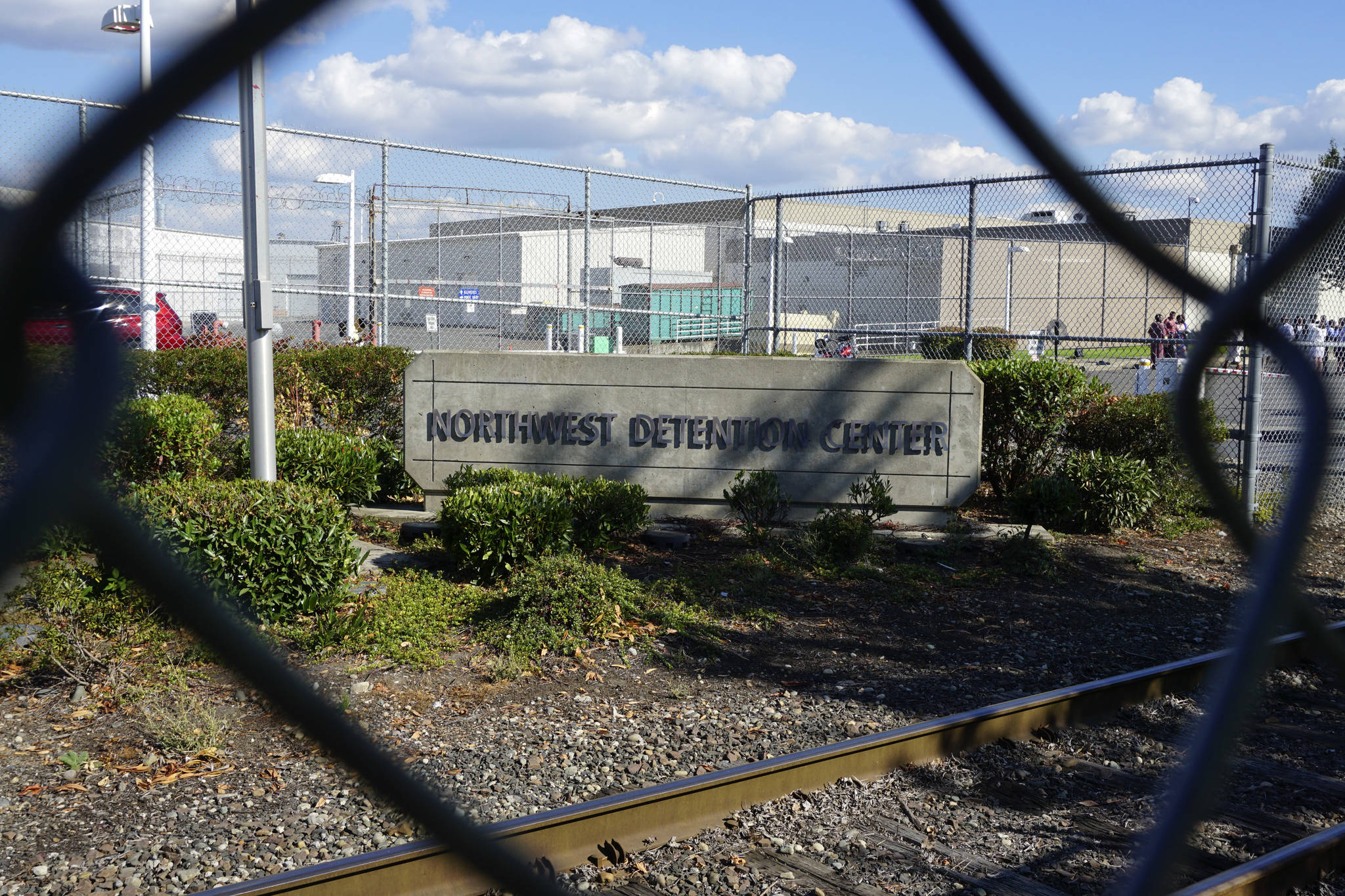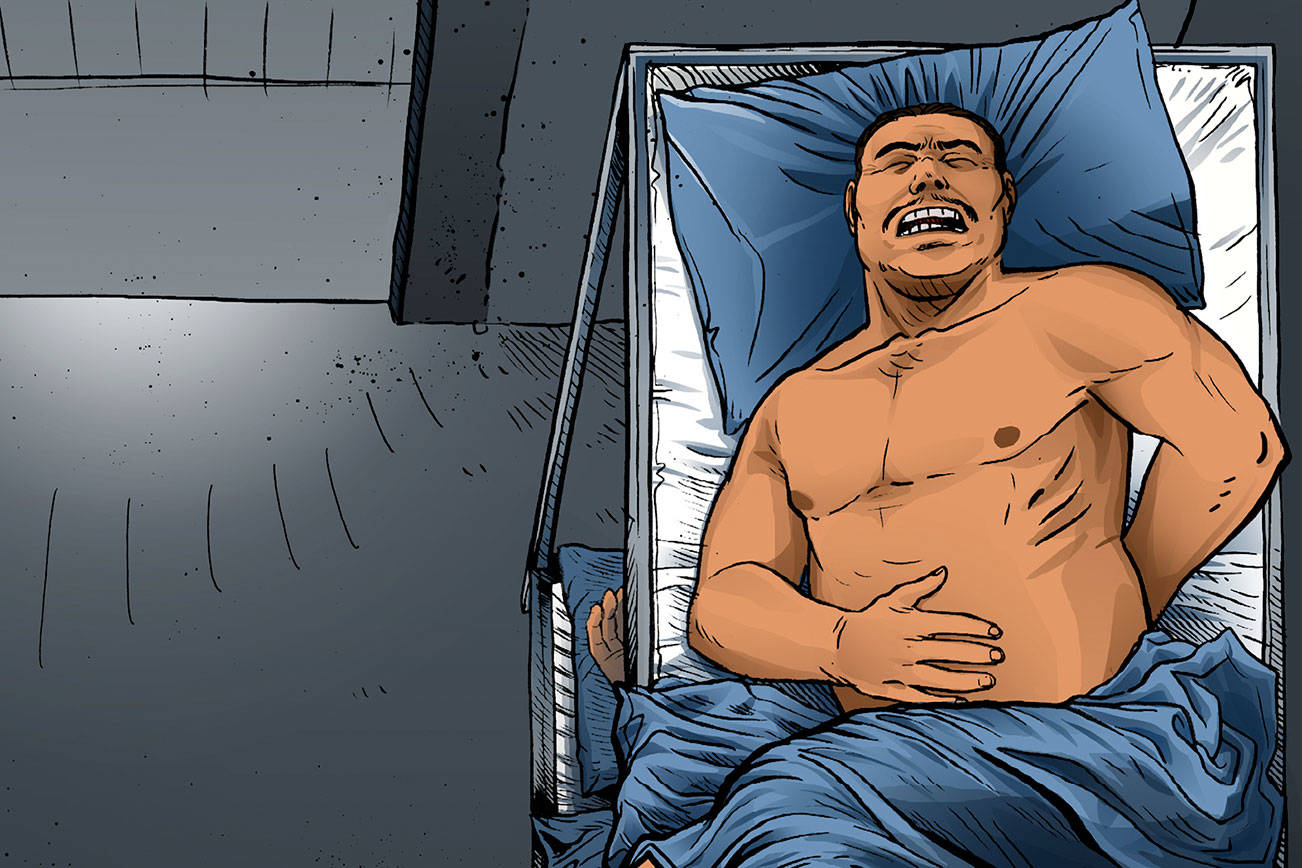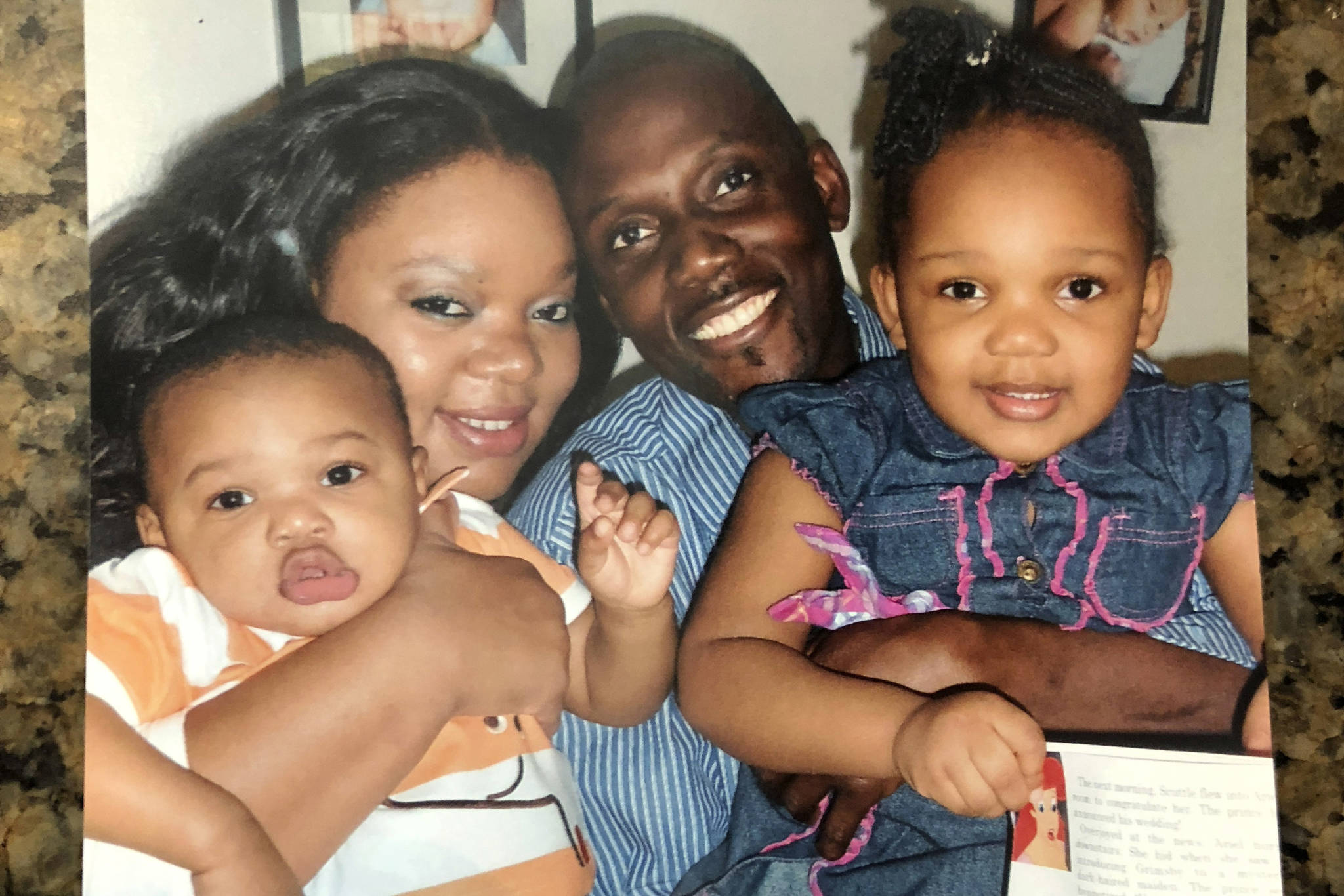ShaCorrie Tunkara awoke with a start when her phone rang at 4 a.m. Oct. 30. Inclined to ignore the call given the unusual hour, she picked up after a few rings in case there was something wrong with her husband, Saja. A Sierra Leone national, Saja Tunkara had been detained since January in the privately run Northwest Detention Center (NWDC), an immigrant detention facility in Tacoma.
On the other end of the line last Tuesday, a U.S. Immigration and Customs Enforcement (ICE) officer told ShaCorrie Tunkara that her husband was being deported that day and that she had less than an hour to bring his belongings and money to a U.S. Citizenship and Immigration Services facility in Tukwila. His removal wasn’t a total surprise, although ShaCorrie Tunkara found the timing suspicious. Moreover, she took issue with ICE’s decision to deport Saja Tunkara without allowing him to see his family beforehand.
Saja Tunkara’s new ICE officer had called him into the detention center’s intake office two weeks earlier to inform him that his wife needed to pack a suitcase for him in the event that he was deported. The day before, on Oct. 10, Seattle Weekly had published a story that detailed Saja Tunkara and other detainees’ allegations of insufficient medical care at the Tacoma facility. ShaCorrie Tunkara’s attempts to secure her husband a green card through her U.S. citizenship were halted upon Saja Tunkara’s removal.
“Even if they were going to deport him, the way that they went about doing it absolutely was retaliation. Because there’s no reason for me to not be able to say goodbye to him, or for him to say goodbye to his children or for us to be able to prepare for it,” ShaCorrie Tunkara said.
Saja Tunkara was one of six current and former NWDC detainees Seattle Weekly interviewed between July and September about conditions at the immigrant detention facility. The detainees’ allegations of insufficient medical care ranged from the denial of surgery for hernias to the solitary confinement of people with mental health issues. On Jan. 10, Saja Tunkara arrived in the detention center with a tumor on his neck that grew while he was in custody until it was surgically removed three months after his arrival. ICE medical records obtained from ShaCorrie Tunkara showed that her husband consistently complained about the tumor for several months and was given Tylenol for pain that he sometimes described as severe.
Members of the immigration advocacy group NWDC Resistance concurred that Saja Tunkara’s removal wasn’t a coincidence. On Oct. 21, the group hosted a rally outside the detention center in response to Tunkara’s imminent deportation. “The fact that the [Seattle Weekly article] was released on Wednesday and that they started the threat that he was going to get deported on Thursday, it’s very clear that that was retaliation,” said NWDC Resistance co-founder Maru Mora Villalpando.
An outspoken undocumented immigrant-rights activist, Mora Villalpando entered deportation proceedings herself last December. She believes that ICE sent her a notice to appear in immigration court last winter in retaliation for her organizing efforts. In fact, a form that’s used in removal proceedings showed that authorities noticed Mora Villalpando after she revealed her immigration status in a June 2017 Whatcom Watch Online article. The document also stated that her “extensive involvement in anti-ICE protests and Latino advocacy programs” should be of note.
According to ICE, Saja Tunkara was held in custody for violating the country’s immigration laws. He also became a target for removal when he was arrested for domestic violence charges. “He was afforded due process in our nation’s immigration courts and provided multiple opportunities to depart the country on his own accord. His removal order became final in April 2012, and his failure to comply with that court order made him an ICE fugitive,” regional ICE spokesperson Tanya Roman wrote in an email Saturday to Seattle Weekly.
Roman rejected the notion that ICE had retaliated against Saja Tunkara for speaking to the media about the conditions that he faced in the detention center. The agency respects people’s right to express their opinions, she said. “Any suggestion to the contrary is irresponsible, speculative, and inaccurate,” Roman wrote. “ICE focuses its enforcement resources on individuals who pose a threat to national security, public safety, and border security. In fact, of the 143,470 arrests ICE made in [fiscal year 2017], 73.7 percent were criminal aliens, and 15.5 percent were aliens with pending criminal charges. We will continue to target criminal aliens whenever and however they come to our attention. That being said, as ICE leadership has made clear, ICE will no longer exempt classes or categories of removable aliens from potential enforcement. All of those in violation of the immigration laws may be subject to immigration arrest, detention and—if found removable by final order—removal from the United States.”
Despite ICE’s declaration that her husband was not a scapegoat targeted for whistleblowing, ShaCorrie Tunkara has requested that the office of U.S. Rep. Adam Smith (who represents Washington’s 9th Congressional District) further investigate the matter. She ultimately hopes that Saja Tunkara will be able to return to the U.S. so he can get proper medical treatment for his decreased eyesight and impaired arm mobility caused by the neck tumor that was surgically removed in April.
ShaCorrie Tunkara talked with her husband after he arrived in Sierra Leone last week, and said that Saja Tunkara is upset he was unable to say goodbye to his family. “He said he feels like we fought the best we could, and even [though] ICE retaliated against us, he doesn’t regret the media attention we put on ICE,” ShaCorrie Tunkara wrote in a text to Seattle Weekly.
mhellmann@seattleweekly.com










